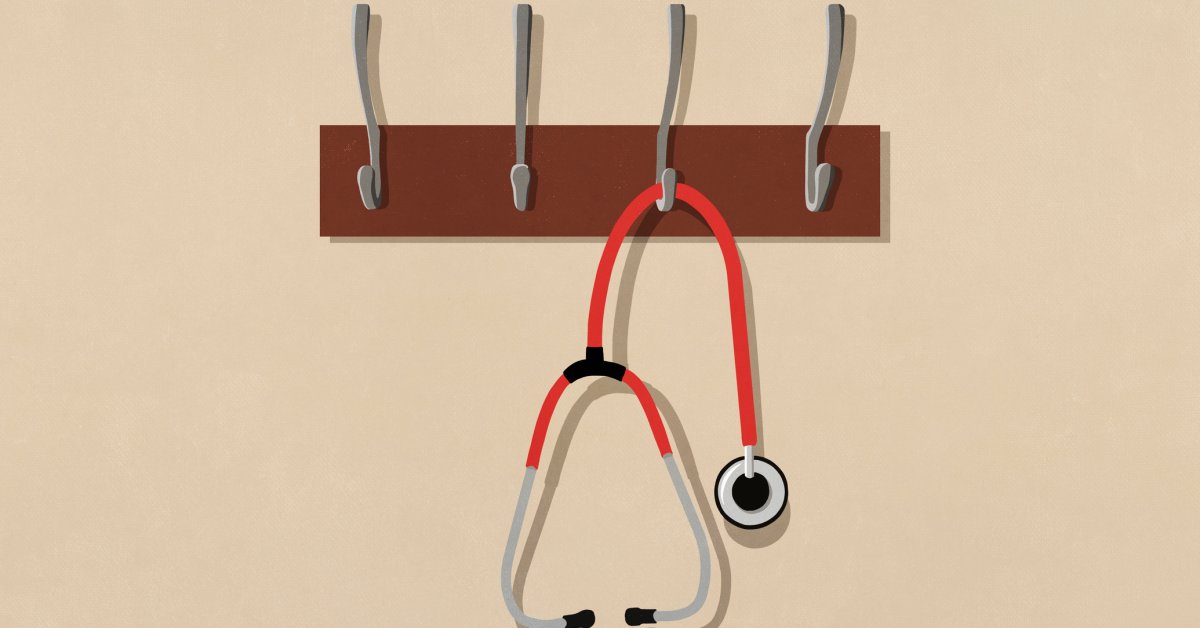When I was 33 I became an emergency department medical director and chair, roles rarely held by women. Perhaps naively, I thought I could leverage my new position to make our emergency department a better place for everyone, and especially for our female staff and patients.
Studies have shown that women physicians are more likely to follow evidence-based clinical guides, provide more preventive care, communicate better with patients, perform as well (if not better) on standardized exams, and provide more psychosocial counseling to their patients than do their male peers. A study from 2017 even showed that patients treated by women physicians had lower mortality and readmission rates. I assumed that having a woman in a leadership role might offer similar benefits. But that wasn’t exactly how it turned out.
Almost immediately, I faced microaggressions and barriers to making meaningful change. There was the executive administrator who argued with me about my title, the chair of medicine who refused to let me speak during meetings, and the per-diem physician with a pattern of sexist behavior reported by nurses and patients. I tried to remove him from the schedule—something fairly easy to do with contractors like him—but my boss continued to support him. A few months later, he missed a patient’s ectopic pregnancy that almost killed her. He thought the pain caused by her ruptured fallopian tube was no more than hysteria. Despite my best efforts, I hadn’t been able to protect this patient from the sexism of one of our physicians.
When I got pregnant myself, things only got worse. Although I had purposefully delayed pregnancy until after I finished my medical training—a decision shared by many of my female colleagues but few of the men—I didn’t want to wait too long to start a family, either. Research suggests that female physicians have higher rates of infertility and pregnancy complications than the general population, risks that only increase with age.
During my first trimester, I felt like I had a constant combination of the flu and car-sickness. Once, I went straight from working a shift to checking in as a patient. But this wasn’t something I liked to talk about, as I didn’t want to be perceived as weak. I felt pressured to cover the empty holes in our schedule, but working overnight shifts during the third trimester can lead to worse health outcomes for both mom and baby. I did all that I could and I worked all the way up to my due date, as I wasn’t eligible for paid parental leave through my job. Although I was expected to heal others, my job made it impossible to adequately care for myself and my baby.
After my daughter was born, we experienced unexpected medical complications which required additional hospital stays and procedures. Then, we struggled to find a suitable daycare for our daughter. In our Oakland neighborhood, many daycares have two year-long waitlists, which means we would have had to apply and pay our deposit before I even got pregnant. I felt like I had no choice but to bring my baby to hospital meetings, something that I worried made me look unprofessional in the eyes of my older, male colleagues.
As I wanted my baby to get the health benefits of breast milk, I had to slip away during busy ER shifts every 4 hours to pump. But even a 15-minute absence meant that I was often late to traumas or cardiac arrests. To be more efficient, I tried a “discrete” pump that fit into my bra so I could keep pumping while seeing patients, no break needed. But then I developed painful, clogged ducts that later required hours of care to resolve. It felt like there was no way to accommodate the needs of my lactating, peri-partum body, something I had never before experienced as an able-bodied person. Suddenly, I had more empathy for many of my patients.
And although motherhood was molding me into a better doctor, I felt like I was failing both at work and at home, with migraines, anxiety, sleep deprivation, and mom-guilt my constant companions. I began to wonder if it was worth it, especially since I hadn’t been able to make any of the meaningful changes I had hoped for. My choice seemed daunting: suffer in a misogynist work environment in order to try to make it better for other women, or find a job that was more supportive yet less impactful.
Ultimately, I resigned and accepted a lower-paying job as an assistant professor, a role more often held by women. Because there wasn’t a big, dramatic event that pushed me out of my role, I felt like a statistic, further proof that women—especially mothers—aren’t suitable leaders. But according to researcher Renate Ysseldyk, my experience was not unique; this was the exact pattern that preceded the departure of so many women from academics. Isabel Torres, the cofounder and chief executive of Mothers in Science, explained that because the obstacles facing mothers in STEM are largely invisible, women, as well as those around them, assume that all it takes to succeed is hard work and determination. So, when a woman finally chooses to walk away from the fallout of systemic failings, it is framed as a personal decision.
Almost immediately, my life was markedly easier. No longer pushing against the status quo, my job was less of a struggle. I was happier, both at work and at home. My health improved. Yet, part of me felt like I had abandoned the women I wanted to serve. I tried to assuage my guilt by telling myself that I could affect more change from a more supported role. And while that has been true, we still need more women in leadership roles.
Although I left one full-time job for another, many of my female colleagues are leaving medicine altogether. Even though men and women now matriculate into medical schools at equal numbers, almost 40% of women physicians scale back their practice or completely leave medicine within six years of finishing residency. The main reason? Family.
Although gender harassment, salary inequity, and gender bias all limit women’s career opportunities in medicine, work-family conflict during the early years of a physician’s career may have an even greater impact. According to a 2019 study, within six years of completing training, 3.6% of men physicians are not working-full time, compared with 4.6% of childfree women physicians and a whopping 30.6% of women physicians who are also moms. But healthcare needs them.
It seems ridiculous to have to argue for the value of women in medicine in this modern age, but the current political landscape threatens to erode our role even further. With federal policies aimed at slashing accommodations that improve diversity, equity, and inclusion, we risk losing even more women from medicine. Instead, we need the opposite—more social and institutional support for work-family balance that allows both women and men to be parents and physicians. It’s just better healthcare.








